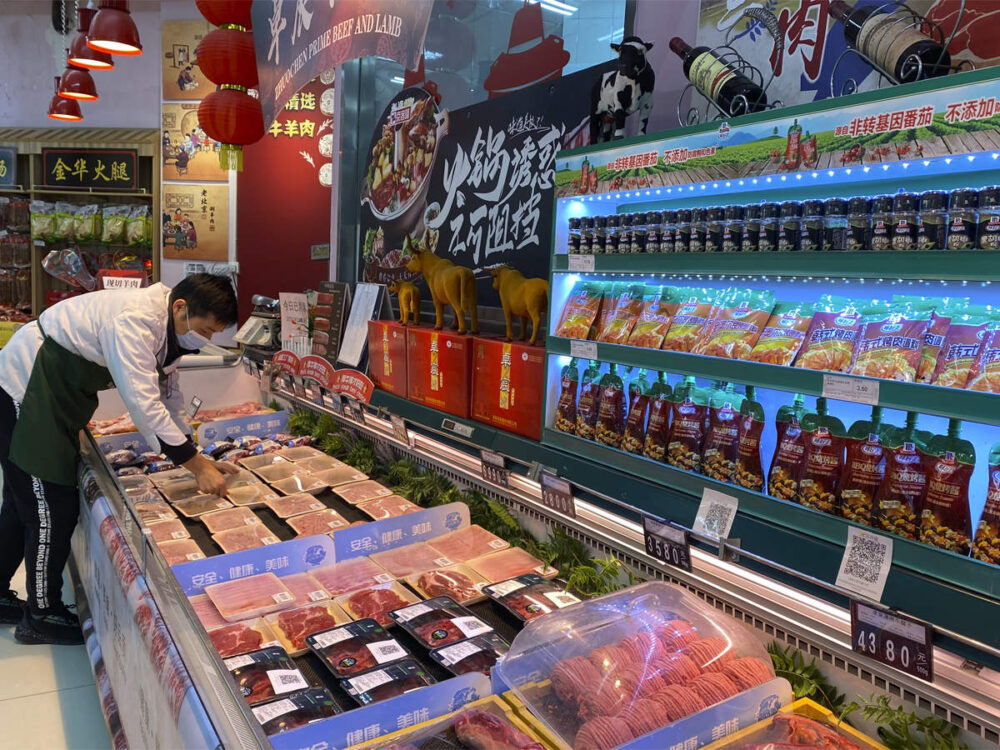From a few in 2016 to at least 60 lab-based meat startups have developed now. More startups are getting ready to lace up in the production line of beef and meat in factories but the challenge continues.

There are various challenges — from trimming high costs and forming large-scale production suitable to winning regulatory approval. With cultivated meat pricing $400 to $2,000 a kilogram (2.2 pounds, there’s much complexity until prices compete with conventional meats, following Lux.
“Economies of scale are likely to help lower the cost in years to come,” said Harini Venkataraman, a Lux analyst in Amsterdam. “That is why these pilot plants are such important milestones.”
Ultimately, Slaughter-free meat is making way to hop from the lab to the factory line.
Singapore became the first country to permit the sale of cultured meat and to make it right for a broader food security agenda, across the world more startups are working to test production of lab-grown meats like beef and chicken in factories. Although there’s much to hit, it’s a pivotal step to fetch cell-based products to supermarket racks.

As concerning the pandemic, Singapore is attempting to produce 30% of its food by 2030, up from less than 10% today. Just now, this has surged the capitalization o native farms.
“Singapore has really spent a lot more time and energy getting this right than Western Europe and the U.S.,” Tetrick said.
The cell-based meat market is projected to reach $140 billion in the next decade, as per the forecasts gleaned by Blue Horizon Corp. AG, which invests in protein substitute.
Initiated by cultured meat head Mark Post, Mosa Meat BV, among at least eight companies building or operating pilot sites. The Dutch group, which made the world’s first cultivated beef burger, has been lifting capitals for those vigorous attempts and plans to boos small-scale output in the first half of the coming year, before stepping to a full industrial site as early as the end of 2022.
“We proved already in 2013 that we can make a hamburger,” Mosa Chief Executive Officer Maarten Bosch acknowledged in an interview. “Now it’s all about scaling up and getting the cost it should be. That’s exactly what this phase is all about.”
Startups declaring test plants include Memphis Meats Inc., backing from Richard Branson and Tyson Foods Inc., together with cell-based seafood maker BlueNalu Inc. Groups such as BioTech Foods, SuperMeat, and Eat Just have recently started testing out sites.
“It’s not a question whether this is feasible,” acknowledged Ido Savir, CEO of SuperMeat, which has initiated a test kitchen for cultured chicken in Israel. “It’s a question of how long it will take us to go from a pilot setting, where we’re at, to a commercial scale. Things are becoming very exciting now.”
Also Read:
1. CAA Likely to Be Implemented from January 2021 in Bengal, says BJP leader Kailash Vijayvargiya
2. 500,000 Indians may get US citizenship, will Biden revive the trust of immigrants?
For more, like us on Facebook or follow us on Twitter, Instagram and Telegram
















